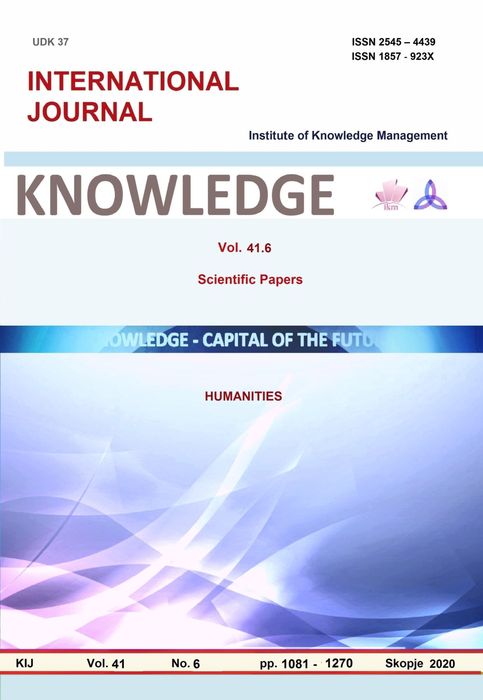LEGAL FRAMEWORK FOR ADMISSION OF FOREIGNERS WITH GRANTED ASYLUM OR INTERNATIONAL PROTECTION IN SCHOOL AGE TO BULGARIA AND PARTICULARITIES OF THEIR BULGARIAN LANGUAGE LEARNING
LEGAL FRAMEWORK FOR ADMISSION OF FOREIGNERS WITH GRANTED ASYLUM OR INTERNATIONAL PROTECTION IN SCHOOL AGE TO BULGARIA AND PARTICULARITIES OF THEIR BULGARIAN LANGUAGE LEARNING
Author(s): Dimitriya Zhelyazkova, Maria MitskovaSubject(s): Human Rights and Humanitarian Law, EU-Legislation, Sociology of Law
Published by: Scientific Institute of Management and Knowledge
Keywords: Regulations; foreigners; asylum; international protection; Bulgarian language; level
Summary/Abstract: The article displays the legal framework documents in Republic of Bulgaria related to the admission of refugees to Republic of Bulgaria, as well as the need and the particularitis for elaboration of tests for establishing their level of proficiency in Bulgarian language. The procedure for admission of refugees in municipal and state schools is regulated by Ordinance №3 of 27.07.2000, Art. 4. Refugee children can be educated in Bulgarian schools, provided that they have successfully completed a Bulgarian language course at the State Agency for Refugees. Such a language course is planned by the National Refugee Integration Program. Integration into Bulgarian society is the only lasting solution for those who have received international protection in our country with a view to fulfilling the international commitments of the Republic of Bulgaria regarding its participation in the EU Common Asylum System (EUCAS) and the challenges for Bulgarian society, the social systems and the labor market related to that. The three-year National Refugee Integration Programs in Republic of Bulgaria implemented by SAR under the Ministry Council were based on a small number of applicants who had searched for and received protection in Bulgaria (processed in the SAR Integration Center – Sofia) – about 60 people per year. The legal framework for the integration of foreigners with granted asylum or international protection in Republic of Bulgaria is established in the Asylum and Refugees Act and in the Ordinance on the terms and conditions for concluding, implementation and termination of agreements for integration of foreigners with granted asylum or international protection {SG, issue 65 dated 19.08.2016, valid since 19.08.2016 In 2015 Bulgaria adopts a National Strategy in the field of migration, asylum and integration, but the National Action Plan for Integration envisaged in the strategy has never been worked out. The new Ordinance does not offer significant support for some of the most important and major insurmountable obstacles to effective integration. UNHCR regrets that the Ordinance does not fill the gaps in the area of access of refugees to social housing and family benefits for children, which the law currently does not allow. This creates a significant risk of homelessness among recognized refugees. Provision of Bulgarian language teaching is also not sufficiently clarified. The municipality organizes and conducts Bulgarian language courses for foreigners who have concluded agreements for integration. With regard to the Bulgarian language courses for adult foreigners, it is recommended on the grounds of Art. 12 of the Ordinance, the municipality to request methodological and organizational assistance and support from the RED of the Ministry of Education and Science in the overall preparation, organization and conduct of the courses, according to the particularities of this target group. The authors of the article do actually prepare tests for level (A1 and A2) proficiency in Bulgarian of persons who have received international protection and migrants of compulsory school age.
Journal: Knowledge - International Journal
- Issue Year: 41/2020
- Issue No: 6
- Page Range: 1119-1126
- Page Count: 8
- Language: Bulgarian

